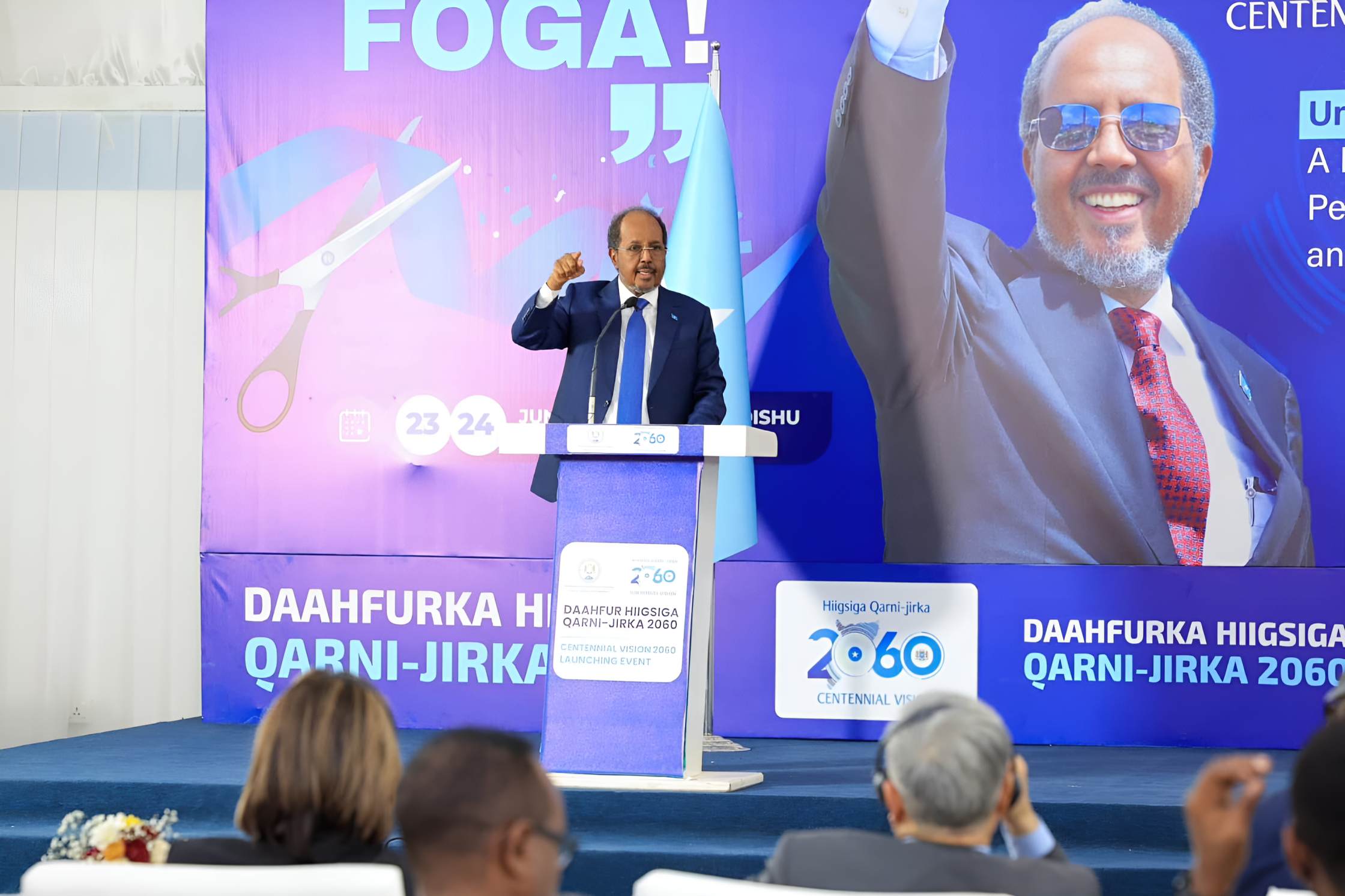Somalia unveils 'Vision 2060' to transform nation by 100th independence anniversary

President Mohamud described the national dream as “a blueprint for change.
The Federal Republic of Somalia launched Centennial Vision 2060, a transformative national development blueprint aimed at turning the country into a peaceful, inclusive, and prosperous middle-income nation by the year 2060, marking a century since its independence.
Unveiled by President Hassan Sheikh Mohamud on Monday, the ambition is built around six strategic pillars: inclusive governance, capable state institutions, human capital development, harnessing productive sectors and natural resources, infrastructure development, and regional and global integration.
It also emphasizes cross-cutting enablers such as digital transformation, gender inclusion, climate resilience, and private sector growth.
President Mohamud described the national dream as “a blueprint for change and a beacon to lead us toward a future free from the burdens of poverty, instability, and division.”
He called on all Somalis, both in the country and across the diaspora, to embrace their role in building a shared national future based on unity, resilience, and innovation.
The policy direction sets ambitious targets, including raising per capita income to \$6,163 by 2060, reducing the national poverty rate from 54% to 12.3%, achieving universal access to quality education, and building a green, climate-resilient economy.
Somalia also aims to sustain a high annual economic growth rate of around 6.8%, supported by diversification into sectors like manufacturing, services, fisheries, and technology.
A central pillar of the plan is the development of human capital. Investments in education, vocational training, and healthcare are prioritized to equip Somalia’s growing youth population with the skills and opportunities needed for economic participation.
The plan outlines goals to achieve universal primary and secondary education, boost university enrollment, and expand technical and vocational training programs.
Inclusive governance is another key focus of the Vision 2060. The development agenda promotes the establishment of transparent, accountable institutions that foster citizen participation, uphold the rule of law, and deliver equitable services.
It calls for a merit-based public sector, strengthened oversight mechanisms, and active engagement with civil society and marginalized groups, including women and persons with disabilities.
Centennial Vision 2060 was developed through a broad-based participatory process led by the National Economic Council (NEC), with contributions from federal and regional governments, civil society, academia, and development partners such as UNECA and the World Bank.
It is aligned with global frameworks like the Sustainable Development Goals (SDGs) and the African Union’s Agenda 2063.
The roadmap also highlights Somalia’s commitment to regional integration and trade, leveraging its recent accession to the East African Community (EAC) and its strategic location along key maritime routes. By 2060, Somalia aims to become a hub for regional trade, logistics, and innovation.
Implementation of the Vision will be guided by five-year Medium-Term Plans, with a strong emphasis on monitoring, accountability, and results-based delivery.
A Vision Delivery Office will coordinate efforts across sectors, regions, and development partners to ensure progress stays on track.
Calling the Vision a “national call to action,” President Mohamud urged citizens, leaders, and institutions to unite behind the plan.
“Together, we possess the power to define our nation’s destiny and build a tomorrow that reflects our collective hopes and dreams,” he said.
